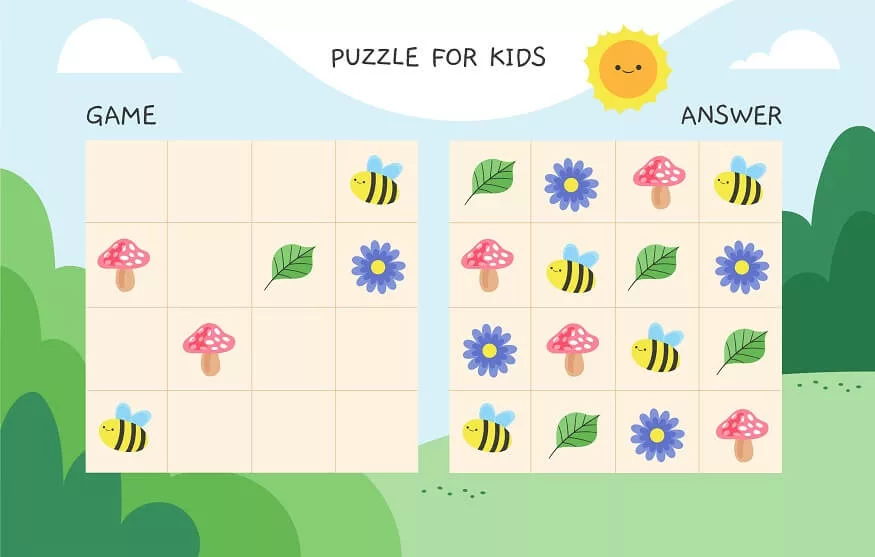In the whirlwind of parenting, we often find ourselves juggling numerous responsibilities while striving to raise compassionate, responsible, and well-mannered children. Instilling essential values in your child from a young age lays a solid foundation for their future. Basic manners for students, good behaviour tips for students, and good manners and etiquette for students are not just buzzwords; they form the bedrock of a child’s character development. Here are seven crucial values to impart to your child before they turn 10.
Respect for Others:
Teaching students manners begins with instilling a deep-rooted respect for others. Encourage your child to listen attentively when others speak, wait their turn, and appreciate diverse perspectives. Basic actions such as expressing “please” and “thank you” have a significant impact in providing respect. Tell them that despite differences, everyone should be treated with care.
Basic manners for students include using polite language. Encourage your child to greet others warmly, whether it’s their teacher, friends, or elders. A friendly “hello” and a sincere smile set the tone for positive interactions. By teaching good manners and etiquette to students, you equip them with the tools to navigate social situations gracefully.
Also Read: Moral Values for Students That Help Build a Good Character
Empathy and Compassion:
Empathy is among the most important things a youngster can learn. Encourage your youngster to share as well as understand the emotions of others. This involves actively listening to their friends, classmates, and family members. Reinforce the importance of kindness through real-life examples and stories that highlight the impact of compassionate actions.
Good behaviour tips for students often revolve around promoting empathy. Encourage your child to put themselves in others’ shoes, fostering a sense of understanding and connection. Activities such as volunteering or helping a friend in need provide practical opportunities for them to practise empathy.
Responsibility:
Teaching good manners in early childhood development includes imparting a sense of responsibility. Assign age-appropriate tasks that teach your child to take care of their belongings, complete homework on time, and contribute to household chores. By instilling a sense of responsibility, you lay the groundwork for a reliable and accountable individual.
Good behaviour tips for students emphasise the importance of fulfilling commitments. Whether it’s a promise to a friend or a task assigned by a teacher, teaching students manners involves instilling a sense of duty. This fosters a strong work ethic and helps them understand the importance of reliability.
Gratitude:
It is essential that we promote thankfulness in the fast-paced society we live in. Urge your child to say “thank you” for life’s small pleasures. Regularly acknowledge and celebrate achievements, no matter how small, to instil a positive and grateful mindset.
Good manners and etiquette for students include expressing gratitude verbally and through actions. Encourage your child to write thank-you notes or draw pictures to show their appreciation. This not only reinforces good manners but also nurtures a grateful heart.
Honesty:
As the cornerstone of integrity and trust, honesty is a basic principle. Make sure your youngster understands the value of telling the truth, even in challenging situations. Encourage them to share their ideas and experiences by creating a space that is accepting and judgement-free. By modelling honesty in your own behaviour, you set a powerful example for your child to follow.
Basic manners for students involve being honest in their interactions with peers and teachers. Emphasise the consequences of dishonesty, highlighting how trust is easily broken and challenging to rebuild. This lesson serves as a cornerstone for their moral development.
Also Read: What is Value Education And Why Is It So Important?
Self-Discipline:
Building self-discipline in kids is vital for their success in personal and school life. Teach your child the value of setting goals, handling time wisely, and making good choices. Make expectations clear and let them see the connection between what they do and what happens as a result.
Tips for good behaviour often focus on self-discipline. Children need to learn to take charge of their actions and think about how their choices match their beliefs. This helps kids make smart decisions independently and grow their self-control.
Curiosity and a Love for Learning:
Let your child’s natural curiosity grow and develop a passion for learning. Create an environment that values exploration and inquisitiveness. Whether it’s through reading, hands-on activities, or engaging discussions, instil a sense of wonder and a thirst for knowledge. This lays the foundation for a lifelong fondness for learning.
Helping kids learn manners involves showing them how to be respectful and curious when it comes to learning. Inspire them to find out information, pose questions, and see setbacks as chances to grow. When you take an interest in learning about them, your child is prepared to face a world that is changing all the time.
Also Read: The Role of Ethics and Values Education in Schools
Benefits of Essential Values to Instil in Your Child Before They Turn 10
Cultivating a Positive Attitude
- Fostering Optimism and Resilience: Teach children to approach challenges with optimism and view setbacks as opportunities for growth.
- Encouraging a Growth Mindset: Promote a mindset that values effort and perseverance, fostering a love for learning and a belief in personal development.
- Embracing Challenges as Opportunities: Help children see challenges as chances to learn and improve, instilling resilience and enthusiasm.
Boosting Self-Confidence
- Recognising and Celebrating Achievements: Acknowledge and celebrate even small accomplishments to build pride and a positive self-image.
- Encouraging Self-Expression: Create a supportive environment for children to express thoughts and feelings, fostering confidence in their unique abilities.
- Providing Supportive Feedback: Offer constructive feedback to help children understand strengths and areas for improvement, contributing to a healthy sense of self-worth.
Developing a Sense of Independence
- Encouraging Decision-Making Skills: Allow children to make age-appropriate decisions, promoting decision-making skills and a sense of responsibility.
- Allowing Age-Appropriate Autonomy: Foster independence by granting age-appropriate responsibilities, enabling them to explore capabilities and build self-reliance.
- Building Self-Reliance: Teach children to rely on their problem-solving skills, fostering resilience and confidence in their abilities.
Preparing for Future Leadership Roles
- Instilling Leadership Qualities: Teach responsibility, empathy, and effective communication, laying the foundation for future leadership roles.
- Nurturing Teamwork and Collaboration: Encourage teamwork and collaboration, emphasising the importance of collective efforts and mutual support.
- Promoting Initiative and Accountability: Instil the values of taking initiative, making informed decisions, and being accountable for one’s actions.ort
Setting the Stage for Lifelong Learning and Adaptability
- Cultivating Curiosity and a Love for Learning: Promote curiosity, encouraging children to ask questions, explore new ideas, and foster a love for learning.
- Emphasising Adaptability in a Changing World: Teach children to embrace change, learn from experiences, and adapt to new situations, fostering resilience and flexibility.
- Encouraging Continuous Personal Growth: Instil the belief that learning is a lifelong journey, inspiring children to seek opportunities for self-improvement and embrace challenges with a positive mindset.
Also Read: Teaching Values and Ethics through ICSE Textbooks
Raising a well-rounded and considerate child involves intentional efforts to instil these essential values. In addition to being a part of politeness, basic manners for students, excellent behaviour advice for students, and good manners and etiquette for students create a child’s character and aid in their entire development. You are creating the foundation for a future generation of accountable, compassionate, and prosperous people by instilling these ideals in your parenting style.
At EuroSchool, we focus on helping kids grow in every way. We want to teach them seven important things before they turn 10. We want them to be positive, feel good about themselves, learn to do things on their own, get ready to lead, and be open to learning all their lives. Our school plans everything carefully, and we create a caring space for kids to become well-rounded individuals. Besides getting good grades, we believe these important values will make our kids responsible, sure of themselves, and able to handle changes. We’re not just about regular learning; we want to prepare them for success in a world that’s always changing.










